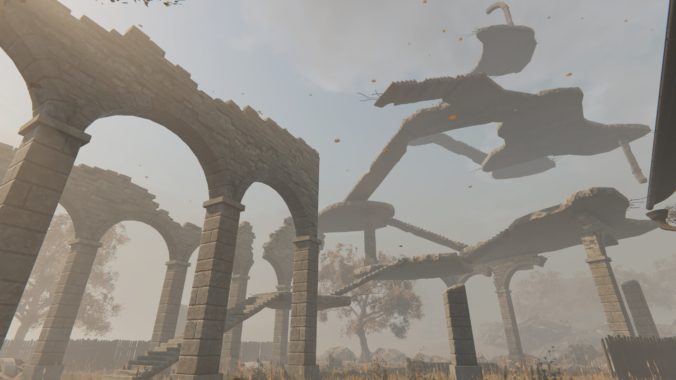Pathologic 2 is a tight-knit confluence of many strange ideas–about bodies and disease, about acting and theater, about community and society, about individual and state, about children and grown-ups, about utopia and transcendence, and (of course) about life and death. Separating the strands is difficult and probably useless; the resulting game is something you accept as a whole, flaws and all, or reject.
And it’s easy to reject. Responses to the game have already divided into those who appreciate the game’s sheer uncanniness but find it hostile and difficult to the point of unplayability, and those who defend those decisions to the hilt as being the very essence of the game.
This dispute isn’t resolvable. A simple description of the game is likely to put off most people, while those who are entranced by it (including myself) can only shrug when presented with its faults, because those faults are what you put up with to get something you can’t get elsewhere—assuming you want that something. I can honestly say I enjoyed it a lot more than Nier: Automata, but I can’t convince you that you will. If it’s something that will appeal to you, you’ll probably know within the next few paragraphs. If it is, I think it’s worth the effort.
Continue reading